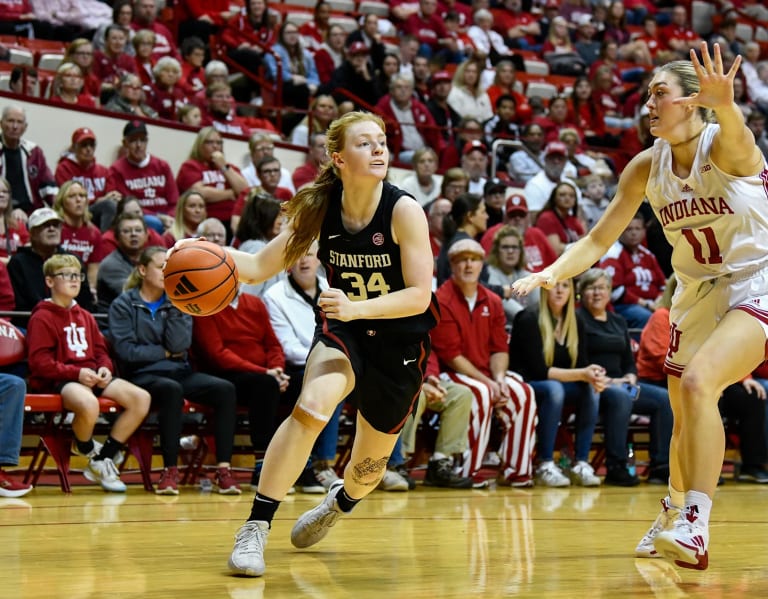Education
Hackers Stole $6 Million From the New Haven School System

Hackers stole more than $6 million from the New Haven, Conn., public school system, Justin Elicker, the city’s mayor, said on Thursday.
A little more than half of that money, $3.6 million, has since been recovered, and an investigation into who was responsible for the theft is underway. For now, the city has stopped its use of electronic money transfers, except for employee payroll, and will instead use checks to make payments.
“It is shocking to me that someone is so greedy that they would steal money from public school children,” Mr. Elicker said in an interview, calling the hackers “criminals” who were “completely unethical.”
The hackers appear to have gained access in late May to the email account of the school system’s chief operating officer and began to monitor conversations among the school official, vendors and the city’s finance office, Mr. Elicker said. The hackers impersonated the school official and vendors in order to divert the school’s money to fraudulent accounts.
Four payments, amounting to more than $5.9 million, that were intended for First Student, a bus company that provides transportation services for students, were instead sent to a fraudulent account in June. Two other payments amounting to over $76,000 that were meant for Shipman & Goodwin, a law firm, were also sent to a fraudulent account in June.
Officials learned of the hack on June 23 when First Student, the bus company, told the city that they had not received expected payments. Officials quickly contacted the bank and the New Haven police department, which then involved the F.B.I.
In early July, hackers attempted to divert money intended to pay SJ Services, a vendor that provides cleaning services, into a fraudulent account, but the move was denied by the city’s finance office because the city had stopped making electronic payments.
The hackers engaged in what the F.B.I. calls business email compromise, which it describes on its website as “one of the most financially damaging online crimes.”
The F.B.I. has since recovered $3.6 million and has been able to freeze some of the remaining funds. It is working to recover the rest. The school system has enough money to pay the vendors and does not “anticipate any interruption in any of the services that we provide,” Mr. Elicker said.
“Ultimately, while this is deeply unfortunate, it’s not going to have a significant financial impact on the city,” the mayor added.
School officials are already alert for cyberattacks, Mr. Elicker said, but the city plans to work with several outside firms to strengthen both its cybersecurity and financial policies and procedures.
Officials are also conducting an internal review to ensure that all employees are following proper protocol. One official in the finance office has already been placed on paid administrative leave as a result of the review.
“Just to be clear, we do not believe any city employee was involved in the hacking itself,” Mr. Elicker said during a news conference on Thursday. “However, we want to ensure that all employees followed proper financial and cybersecurity procedures.”
It was the first time the city’s public school system had been hacked in this way, Mr. Elicker said.
School systems and other public institutions have long been the target of hackers. Last fall, a cyberattack forced the Suffolk County government to use pen and paper and fax machines from the 1990s. Hackers stole sensitive data and forced Long Island officials to disable email for all 10,000 civil service workers.

Education
Video: Biden Apologizes for U.S. Mistreatment of Native American Children

new video loaded: Biden Apologizes for U.S. Mistreatment of Native American Children
transcript
transcript
Biden Apologizes for U.S. Mistreatment of Native American Children
President Biden offered a formal apology on Friday on behalf of the U.S. government for the abuse of Native American children from the early 1800s to the late 1960s.
-
The Federal government has never, never formally apologized for what happened until today. I formally apologize. It’s long, long, long overdue. Quite frankly, there’s no excuse that this apology took 50 years to make. I know no apology can or will make up for what was lost during the darkness of the federal boarding school policy. But today, we’re finally moving forward into the light.
Recent episodes in Politics
Education
Video: Los Angeles Bus Hijacked at Gunpoint

new video loaded: Los Angeles Bus Hijacked at Gunpoint
transcript
transcript
Los Angeles Bus Hijacked at Gunpoint
The person suspected of hijacking a bus which killed one person, was taken into custody after an hourlong pursuit by the Los Angeles Police Department early Wednesday morning.
-
“Get him.”
Recent episodes in Guns & Gun Violence
Education
The Youngest Pandemic Children Are Now in School, and Struggling

The pandemic’s babies, toddlers and preschoolers are now school-age, and the impact on them is becoming increasingly clear: Many are showing signs of being academically and developmentally behind.
Interviews with more than two dozen teachers, pediatricians and early childhood experts depicted a generation less likely to have age-appropriate skills — to be able to hold a pencil, communicate their needs, identify shapes and letters, manage their emotions or solve problems with peers.
A variety of scientific evidence has also found that the pandemic seems to have affected some young children’s early development. Boys were more affected than girls, studies have found.
“I definitely think children born then have had developmental challenges compared to prior years,” said Dr. Jaime Peterson, a pediatrician at Oregon Health and Science University, whose research is on kindergarten readiness. “We asked them to wear masks, not see adults, not play with kids. We really severed those interactions, and you don’t get that time back for kids.”
The pandemic’s effect on older children — who were sent home during school closures, and lost significant ground in math and reading — has been well documented. But the impact on the youngest children is in some ways surprising: They were not in formal school when the pandemic began, and at an age when children spend a lot of time at home anyway.
The early years, though, are most critical for brain development. Researchers said several aspects of the pandemic affected young children — parental stress, less exposure to people, lower preschool attendance, more time on screens and less time playing.
Yet because their brains are developing so rapidly, they are also well positioned to catch up, experts said.
The youngest children represent “a pandemic tsunami” headed for the American education system, said Joel Ryan, who works with a network of Head Start and state preschool centers in Washington State, where he has seen an increase in speech delays and behavioral problems.
Not every young child is showing delays. Children at schools that are mostly Black or Hispanic or where most families have lower incomes are the most behind, according to data released Monday by Curriculum Associates, whose tests are given in thousands of U.S. schools. Students from higher-income families are more on pace with historical trends.
But “most, if not all, young students were impacted academically to some degree,” said Kristen Huff, vice president for assessment and research at Curriculum Associates.
Recovery is possible, experts said, though young children have not been a main focus of $122 billion in federal aid distributed to school districts to help students recover.
“We 100 percent have the tools to help kids and families recover,” said Catherine Monk, a clinical psychologist and professor at Columbia, and a chair of a research project on mothers and babies in the pandemic. “But do we know how to distribute, in a fair way, access to the services they need?”
What’s different now?
“I spent a long time just teaching kids to sit still on the carpet for one book. That’s something I didn’t need to do before.”
David Feldman, kindergarten teacher, St. Petersburg, Fla.
“We are talking 4- and 5-year-olds who are throwing chairs, biting, hitting, without the self-regulation.”
Tommy Sheridan, deputy director, National Head Start Association
Brook Allen, in Martin, Tenn., has taught kindergarten for 11 years. This year, for the first time, she said, several students could barely speak, several were not toilet trained, and several did not have the fine motor skills to hold a pencil.
Children don’t engage in imaginative play or seek out other children the way they used to, said Michaela Frederick, a pre-K teacher for students with learning delays in Sharon, Tenn. She’s had to replace small building materials in her classroom with big soft blocks because students’ fine motor skills weren’t developed enough to manipulate them.
Michaela Frederick, a pre-K teacher in Sharon, Tenn., playing a stacking game with a student.
Aaron Hardin for The New York Times Preschoolers do not have the same fine motor skills as they did prepandemic, Ms. Frederick said.
Aaron Hardin for The New York Times
Perhaps the biggest difference Lissa O’Rourke has noticed among her preschoolers in St. Augustine, Fla., has been their inability to regulate their emotions: “It was knocking over chairs, it was throwing things, it was hitting their peers, hitting their teachers.”
Data from schools underscores what early childhood professionals have noticed.
Children who just finished second grade, who were as young as 3 or 4 when the pandemic began, remain behind children the same age prepandemic, particularly in math, according to the new Curriculum Associates data. Of particular concern, the students who are the furthest behind are making the least progress catching up.
The youngest students’ performance is “in stark contrast” to older elementary school children, who have caught up much more, the researchers said. The new analysis examined testing data from about four million children, with cohorts before and after the pandemic.
Data from Cincinnati Public Schools is another example: Just 28 percent of kindergarten students began this school year prepared, down from 36 percent before the pandemic, according to research from Cincinnati Children’s Hospital.
How did this happen?
“They don’t have the muscle strength because everything they are doing at home is screen time. They are just swiping.”
Sarrah Hovis, preschool teacher, Roseville, Mich.
“I have more kids in kindergarten who have never been in school.”
Terrance Anfield, kindergarten teacher, Indianapolis
One explanation for young children’s struggles, childhood development experts say, is parental stress during the pandemic.
A baby who is exposed to more stress will show more activation on brain imaging scans in “the parts of that baby’s brain that focus on fear and focus on aggression,” said Rahil D. Briggs, a child psychologist with Zero to Three, a nonprofit that focuses on early childhood. That leaves less energy for parts of the brain focused on language, exploration and learning, she said.
During lockdowns, children also spent less time overhearing adult interactions that exposed them to new language, like at the grocery store or the library. And they spent less time playing with other children.
Kelsey Schnur, 32, of Sharpsville, Pa., pulled her daughter, Finley, from child care during the pandemic. Finley, then a toddler, colored, did puzzles and read books at home.
But when she finally enrolled in preschool, she struggled to adjust, her mother said. She was diagnosed with separation anxiety and selective mutism.
“It was very eye-opening to see,” said Ms. Schnur, who works in early childhood education. “They can have all of the education experiences and knowledge, but that socialization is so key.”
Preschool attendance can significantly boost kindergarten preparedness, research has found. But in many states, preschool attendance is still below prepandemic levels. Survey data suggests low-income families have not returned at the same rate as higher-income families.
“I have never had such a small class,” said Analilia Sanchez, who had nine children in her preschool class in El Paso this year. She typically has at least 16. “I think they got used to having them at home — that fear of being around the other kids, the germs.”
Time on screens also spiked during the pandemic — as parents juggled work and children cooped up at home — and screen time stayed up after lockdowns ended. Many teachers and early childhood experts believe this affected children’s attention spans and fine motor skills. Long periods of screen time have been associated with developmental delays.
Heidi Tringali, an occupational therapist in Charlotte, N.C., playing with a patient.
Travis Dove for The New York Times
Children are showing effects of spending time on screens, Ms. Tringali said, including shorter attention spans, less core strength and delayed social skills.
Travis Dove for The New York Times
Heidi Tringali, a pediatric occupational therapist in Charlotte, N.C., said she and her colleagues are seeing many more families contact them with children who don’t fit into typical diagnoses.
She is seeing “visual problems, core strength, social skills, attention — all the deficits,” she said. “We really see the difference in them not being out playing.”
Can children catch up?
“I’m actually happy with the majority of their growth.”
Michael LoMedico, second-grade teacher, Yonkers, N.Y.
“They just crave consistency that they didn’t get.”
Emily Sampley, substitute teacher, Sioux Falls, S.D.
It’s too early to know whether young children will experience long-term effects from the pandemic, but researchers say there are reasons to be optimistic.
“It is absolutely possible to catch up, if we catch things early,” said Dr. Dani Dumitriu, a pediatrician and neuroscientist at Columbia and chair of the study on pandemic newborns. “There is nothing deterministic about a brain at six months.”
There may also have been benefits to being young in the pandemic, she and others said, like increased resiliency and more time with family.
Some places have invested in programs to support young children, like a Tennessee district that is doubling the number of teaching assistants in kindergarten classrooms next school year and adding a preschool class for students needing extra support.
Oregon used some federal pandemic aid money to start a program to help prepare children and parents for kindergarten the summer before.
For many students, simply being in school is the first step.
Sarrah Hovis, a preschool teacher in Roseville, Mich., has seen plenty of the pandemic’s impact in her classroom. Some children can’t open a bag of chips, because they lack finger strength. More of her students are missing many days of school, a national problem since the pandemic.
But she has also seen great progress. By the end of this year, some of her students were counting to 100, and even adding and subtracting.
“If the kids come to school,” she said, “they do learn.”
-
Business1 week ago
Column: OpenAI just scored a huge victory in a copyright case … or did it?
-

 Health1 week ago
Health1 week agoBird flu leaves teen in critical condition after country's first reported case
-

 Business5 days ago
Business5 days agoColumn: Molly White's message for journalists going freelance — be ready for the pitfalls
-
World1 week ago
Sarah Palin, NY Times Have Explored Settlement, as Judge Sets Defamation Retrial
-

 Politics4 days ago
Politics4 days agoTrump taps FCC member Brendan Carr to lead agency: 'Warrior for Free Speech'
-

 Science2 days ago
Science2 days agoTrump nominates Dr. Oz to head Medicare and Medicaid and help take on 'illness industrial complex'
-
/cdn.vox-cdn.com/uploads/chorus_asset/file/25739950/247386_Elon_Musk_Open_AI_CVirginia.jpg)
/cdn.vox-cdn.com/uploads/chorus_asset/file/25739950/247386_Elon_Musk_Open_AI_CVirginia.jpg) Technology3 days ago
Technology3 days agoInside Elon Musk’s messy breakup with OpenAI
-

 Lifestyle4 days ago
Lifestyle4 days agoSome in the U.S. farm industry are alarmed by Trump's embrace of RFK Jr. and tariffs














